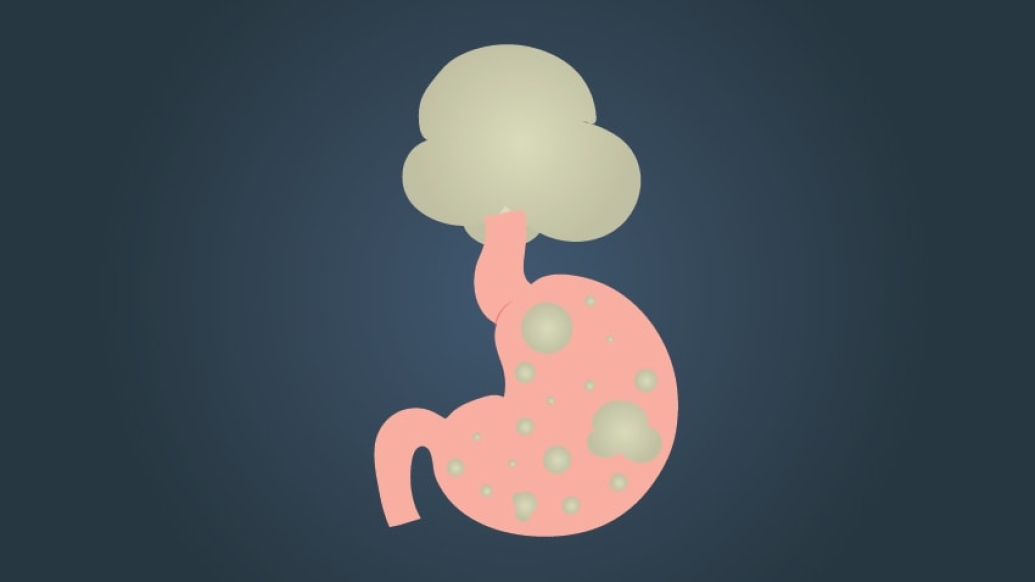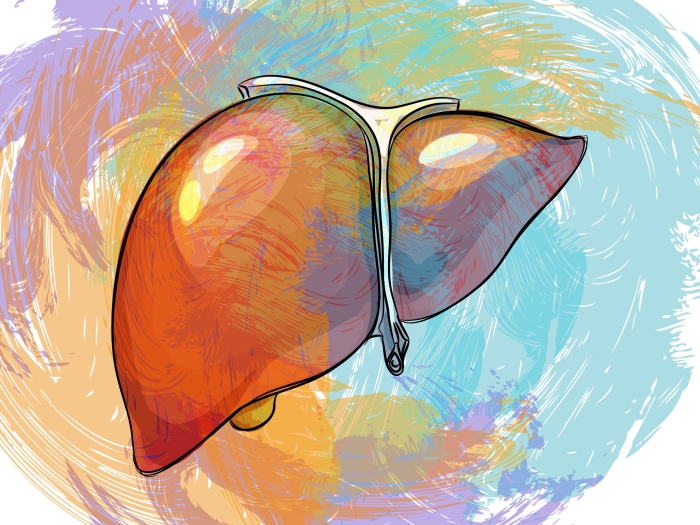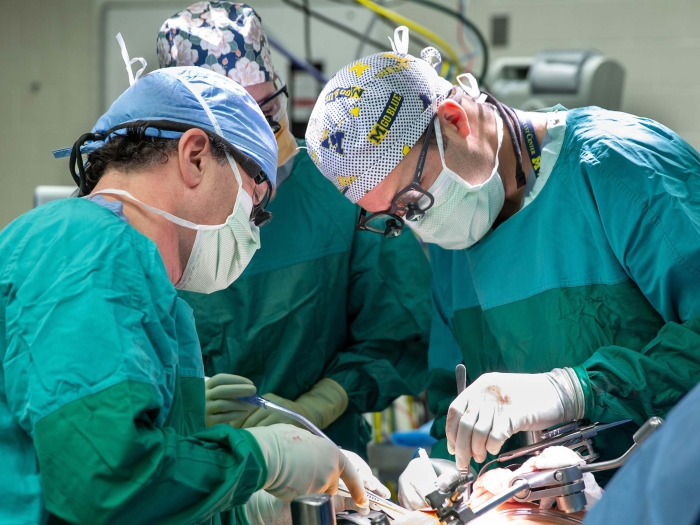Meant to control gas production, methane in your gut also can cause discomfort. A Michigan Medicine expert explains the condition — and potential new treatment.
7:00 AM
Author |

Sometimes, too much of a good thing can be a problem.
Consider the methane in your stomach: Its normal function is to keep hydrogen and carbon dioxide levels (byproducts from indigestible fibers broken down by gut microbes) in check. That, in turn, helps control gas production.
MORE FROM MICHIGAN: Sign up for our weekly newsletter
Methane, a byproduct of the digestion process involving an organism known as archaea feeding off hydrogen, is expelled via flatulence or exhaling.
But in certain people, high methane levels may cause abdominal pain, bloating and constipation, says Michigan Medicine gastroenterologist Allen Lee, M.D.
It's the result of an imbalance in the gastrointestinal system. The cause of this imbalance is unknown, but it is likely a combination of genetics, diet, antibiotic use and illness.
And because each person has a different body chemistry and mix of bacteria, some have more of this gas production and are considered "methane producers" — a designation that one study says includes about 30 to 50 percent of adults worldwide.
While not everyone has symptoms, Lee says this designation is clinically associated with chronic constipation and constipation-predominant irritable bowel syndrome, or IBS.
Methane on the move
While most bacteria stay in the colon, sometimes there is too much and it creeps into the small intestine, causing a condition known as small intestinal bacterial overgrowth (SIBO). This may lead to symptoms of abdominal pain, bloating, diarrhea and flatulence.
SEE ALSO: Feeling Bloated, Gassy or Constipated? Easy Adjustments Can Help
"In severe cases, it can lead to vitamin and mineral deficiencies," says Lee, also a clinical lecturer at the University of Michigan. "That can potentially lead to malabsorption, weight loss and some pretty significant symptoms."
Diagnosing SIBO can involve a culture of the small intestine using an endoscope — a costly and invasive procedure that doctors try to avoid, Lee says.
Instead, a physician may conduct breath testing. This involves a patient exhaling into a tube to measure hydrogen and methane levels in the breath.
The patient then drinks a sugar solution. For patients who may have SIBO, small intestinal bacteria can ferment the sugar before it can be absorbed, thus producing hydrogen or methane.
The lab periodically measures how much hydrogen and methane a patient exhales over time. If the numbers rise, it helps confirm whether that person is a methane producer or may have SIBO. The breath test typically takes two hours.
"As humans, we don't produce hydrogen or methane in the breath, and the only way it is produced is through the gut bacteria, so we use it as a proxy to determine if there is an overgrowth of bacteria in the gut," Lee says.
Evolving treatment
Treating excessive methane, whether in the colon or small intestine, has required some creative thinking. That's because methanogens, the microorganisms that produce methane, are distinct and separate from bacteria.
"As a result, their cell wall is different than bacterial cell walls and are resistant to many traditional antibiotics," Lee says, noting that a combination of two antibiotics — rifaximin and neomycin — seems to help many patients.
He's excited about the early findings of a study that is using statins (typically cholesterol-reducing drugs) on animal models. In a phase 2 study in humans, the statin was found to inhibit methane production and improve constipation-predominant IBS symptoms, suggesting a breakthrough with the unusual cell wall, Lee says.
"This is promising, and we're all excited about seeing the results of the phase 3 study when it comes out," Lee says. "It's definitely out-of-the-box thinking."
To make an appointment with a Michigan Medicine gastroenterologist, call 1-888-229-7408.

Explore a variety of healthcare news & stories by visiting the Health Lab home page for more articles.

Department of Communication at Michigan Medicine
Want top health & research news weekly? Sign up for Health Lab’s newsletters today!





